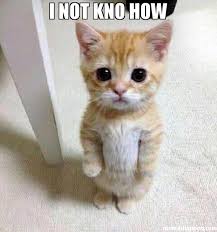One of the most easily confused and under-utilized resources on campus is the Student Wellness Center, on the main floor of the RPAC. This center may seem small from the outside, but it houses many offices, countless resources and is supported by over 200 peer volunteers.
I sat down with Blake Marble, one of the assistant directors, and Todd Gibbs, the Wellness Coaching program coordinator, to learn more about what the Student Wellness Center has to offer and why students should access its many resources.
Part I: The Wellness Center
For those who are unfamiliar with the Student Wellness Center, can you explain what exactly this center is and does for students?
Blake: “The Student Wellness Center works to educate students about wellness topics and wellness issues. We focus on education, prevention and raising awareness. We are oftentimes confused with Student Health Services. We don’t provide any clinical, medical care or anything like that; we focus on the education piece.
“One of the main things to know about our office is that we are very student-driven. A lot of our one-on-one services are facilitated by students, so it’s students helping students, and that’s one of the main pieces we focus on here because we want to give our students the opportunity to develop those skills to help each other.”
What are the most common reasons students visit the Student Wellness Center?
Blake: “I think there are three main reasons students come to the Student Wellness Center:
1. One is for the excellent one-on-one services we provide students, the personal one-on-one conversation.
2. (Another reason) is for our workshops and presentations; we give over 150 educational workshops each semester.
3. Lastly, to get involved. We have over 200 students who are trained to volunteer in a variety of different ways at the Wellness Center — in all of our one-on-one services (Scarlet And Grey Financial, Nutrition Coaching, alcohol and other drug one-on-one educational sessions, HIV/STI testing, and Wellness Coaching).”
What kinds of programs do student volunteers help with?
Blake: “Every single one of (these programs) has a peer education component to them. We have students who are trained to facilitate all of those one-on-one conversations with students. Students are also involved in giving those presentations to a variety of groups and organizations across campus.
“All volunteers go through extensive training about other resources outside of the Student Wellness Center, to help refer students to outside resources if needed.”
What are your numbers of students and staff?
Blake: “We have around 10-11 full-time staff members, with program coordinators all specializing in different areas and a tad over 200 student volunteers (some graduate level, majority undergraduate level).”
*Interested students who have a passion for helping others can become trained volunteers at the Wellness Center. Often, students in Fisher who desire to one day become financial advisors get involved in Scarlet And Grey Financial Services, and many Public Health students look to become Wellness Coaches. However, the Wellness Center eagerly accepts students from any background or major! If you have a passion for helping others, consider the incredible opportunity! Interested in getting involved? Get started here!
What resources does the Student Wellness Center offer that more students should utilize?
Blake: “Every single one of them. There’s so many here, and I’ll say the one thing that I tell students in every workshop and conversation that I have with them: ‘You’re at a point in your life as an Ohio State student that you have more resources available to you free of charge than you probably will again in your life, and odds are you can walk to just about all of them within about 10 minutes. So no matter what it is that you want to work on within your own personal life – there’s someone here to help you, so use those resources.”
“We see thousands of students every year for one-on-one sessions but we always want more students to come.”
Are there any new programs students should know about?
“I would say one of the newest programs that we have that has really taken off over the past year or so is our Wellness Coaching program. But it’s basically a strengths-based approach to wellness. So it’s a one-on-one coaching session where students can come in wellness coaching regarding anything, any types of issues that they’re having, any obstacles they have in their life… (Wellness Coaching) has a strength-based component to it; you take a strengths finder before you come in, and then use those strengths to then meet your goals in life — to really maximize your potential.”
*The Wellness Center partners with all student life programs including CCS, Student Health Services, refer back and forth based on how to best meet the needs of the students coming in.
What are some common challenges students face in their first year?
Blake: “I immediately think about the transition from high school to college. But with that come many challenges relating to personal wellbeing or personal wellness. Some of the things that I automatically think of are stress and time management, and these things affect your emotional wellness and stuff like that. There are so many changes and decisions your first year that it comes down to prioritizing the things in your life and not letting it overwhelm you at times.
“A lot of it too is finding that social support system around you. I think a lot of students come from high school and are challenged with coming to such a big place and finding that support group within Ohio State and it can be kind of overwhelming at times. So a lot of it is that social-emotional aspect of it and finding where you fit in and understanding that college is a place to explore different things, get involved in different areas, but also being strategic about that.”
What would you say to a student who’s going through some of those transitional issues and is perhaps hesitant about addressing those problems?
Blake: “We all face challenges on a daily basis, it matter of how we approach those challenges and the way that we view things in our lives and put things in perspective. But one of the things I tell students on a daily basis, no matter what it is or what they’re working on or what they’re challenged with, just utilize the resources that are available to you. Whether that’s the Student Health Center, FYE, counseling (CCS), anything on campus, just utilize the resources that are available to you. All of our students and staff are trained in resources outside of our office so if maybe we can’t answer all the questions or maybe we’re not the people that are trained to help you in one specific area but we can connect you to the people and resources that are.”
What would you say is the program area that students access the most?
Blake: “Honestly, the most foot traffic we probably get on a weekly basis is Condom Club. It’s quick, easy, accessible, and one of our resources that student utilize the most.”
“Some people think that’s all we do (laughing). It’s a struggle at times but it gets them through the door and they then learn about all the other things that we do.”
For students who may be apprehensive about asking for help, how can they take that first step?
- Email
- Schedule appointment online
- Connect through peers
Blake: “Research has shown that students feel more comfortable talking to other students about different things that they’re dealing with in their lives and that’s been one of the reasons that we have so many students that go through extensive training on this, but we also do have experts in each of these areas that help reach out to those students if needed.”
“There’s a lot of stigmas associated with wellness issues, and we’re trying to break down those walls on a daily basis and we’re trying to approach things from a different perspective that might help reduce those stigmas a little bit.”
What else would you like first-year students to know?
Blake: “We’re here to help, I just want students to know that. And everything we do is free too, everything is free of charge. You pay for it in your student fees, but nothing that we do cost money, so we want students to really utilize these resources.”
Appointments: After you reach out to make an appointment, most appointments are 45 minutes to an hour long.
Blake: “We usually can see students within a week or so (of their initial call) for their session — so it’s a pretty quick turn around.”
Some services do have some pre-appointment components for students to fill out prior to an appointment:
Part II. Wellness Coaching
Nutrition Coaching, Financial Coaching… but what really is Wellness Coaching?
Wellness Coaching is one of many services available through the Wellness Center. However, Wellness Coaching specifically focuses on the nine different dimensions of wellness using a strengths-based model.
Todd: “We think that challenges are just part of being human. So if people can identify their strengths and start to use them to move toward the goals they have for their wellness, then lots of good things can happen. That’s what we do.”
Coaching vs. Counseling
Todd: “Our coaches are largely peers rather than medical professionals.”
Counseling: Uses medical model: diagnose the problem then treat it.
Coaching: Uses strengths and positive psychology to look at what’s going right with people, not what’s going wrong
What are the top wellness areas (out of the nine dimensions of wellness) that students seek help through wellness coaching?
Blake: “Two of the top areas that students want to focus on more are social wellness and emotional wellness.”
Q: Why do students typically face emotional wellness concerns?
A: Stresses of finding a major or making life decisions.
Todd: “I think that you can feel (stressed, overwhelmed, anxious) if you don’t know that you’re capable of navigating through those transitions. It can pose a real threat.”
“I think that’s what’s at the core of the coaching, helping people see that ‘Oh I am someone that can make the decisions for my life and who knows what I really care about and value so I can find my way through that, so now I don’t get quite as stressed or as anxious when I run into those things in the future.’”
Attempting to be well in all nine dimensions can be overwhelming:
Todd: “When you improve your wellness in any area, it improves your wellness overall … If it matters to you and you invest in your wellness in that area, it is going to have nothing but benefits for you in that area, whether it’s something you are already strong in, or an area where you think you need more improvement.”
More information:
Student Wellness Center Hours:
Monday-Thursday 9 a.m. to 9 p.m.
Friday 9 a.m. to 5 p.m.













